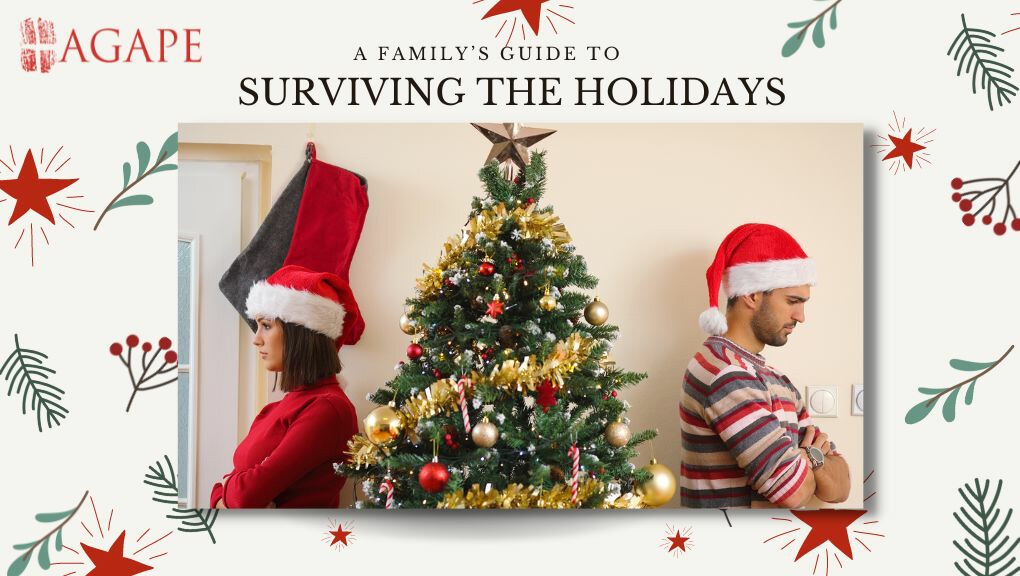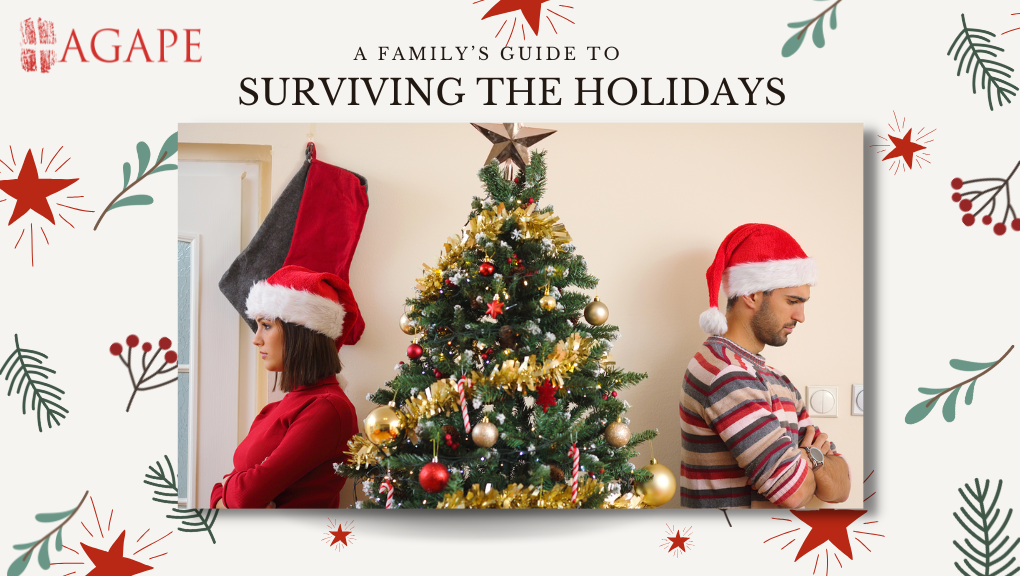A Family’s Guide to Surviving the Holidays
by Daniel Camp, DMin, LMFT on December 08, 2023

Where did you go for Thanksgiving? What are your plans for Christmas Eve or Christmas Day? Are your holidays normally an enjoyable time with family—a time you can laugh together, share together, and reflect on the goodness of God in your lives—or are your holidays a stress-inducing nightmare that you wish would end quickly. (Or maybe it’s a combination of both.) While we all dream of perfect, peaceful holidays, few find it.
We all have our own holiday traditions, but when you or someone else in your family marries, you marry into a whole other family. And with another family comes another set of holiday traditions, immediate in-laws, extended family, in-laws’ family, and an ever-growing web of folks to accommodate in one way or another. The different demands and expectations that others place on you, or that you perhaps place on yourself, can set the stage for tension and conflict throughout the holiday season.
The holidays can be a festive time, but they can also be a time of anger, conflict, and stress in a family. It's amazing how much distress we can bring upon ourselves when we're driven by guilt, ("You can't be the first person in the family to not make it home for Christmas Eve dinner in the last 27 years."), obligation ("I think we can make the hundred mile drive between both houses on Christmas morning, and then still stop by Aunt Joan's that night."), and worry ("We have to go. What if something happens between now and next Christmas, and this is the last Christmas I can see them.").
So how can a you protect yourself, honor your family, and still enjoy the holidays? Everyone has to figure out how to navigate the waters themselves depending on their circumstances, but here are a few general thoughts:
- First, create your own traditions and guard them zealously. If Santa comes to your house on Christmas morning, don’t let someone guilt you into giving that up. Set boundaries long before the holiday season hits, deciding where you will and will not go and what you will and will not do, and stick to those boundaries.
- Second, recognize that things may have to change as your family changes. Kids grow up. In-laws are introduced into the equation. Jobs change. People move. Health changes. Seek some normalcy, but recognize that life happens, and sometimes it can happen very quickly and very unexpectedly.
- Third, give yourself or others in your family space to grieve when a long standing tradition has to change. If it truly is the first time in 27 years he/she hasn't been in his/her parents' home at Christmas, or the first time grandma's health won't allow her to cook Christmas dinner, or the first time your kids won't be sleeping in their beds on Christmas Eve, it's okay to be emotional about that.
- Fourth, don’t become what you say you don’t like. Think about the things that cause you stress during the holidays, and don’t do the same thing to others. If you felt guilty every time you heard “I guess they just won’t get to see their grandparents on Christmas day,” then don’t do the same to your kids. If you hated running to a dozen different places, don’t ask your family to spend the entire holiday on the road. And certainly, don’t use manipulative tactics to satisfy your own selfishness.
- And finally, don’t miss out on the spiritual blessing of the holiday. The word “holiday” means “holy day.” Make it a priority to let the holidays include at least some time of spiritual renewal for you and your spouse together.
Nobody wants to offend and alienate family, especially during a time that’s supposed to be joyful and peaceful. Ultimately you have to decide if you are going to be angry and resentful (at yourself, at your spouse, at your in-laws, or at anyone else), or if you’re going to let the holiday be a blessing to you and to your family.




Login To Leave Comment